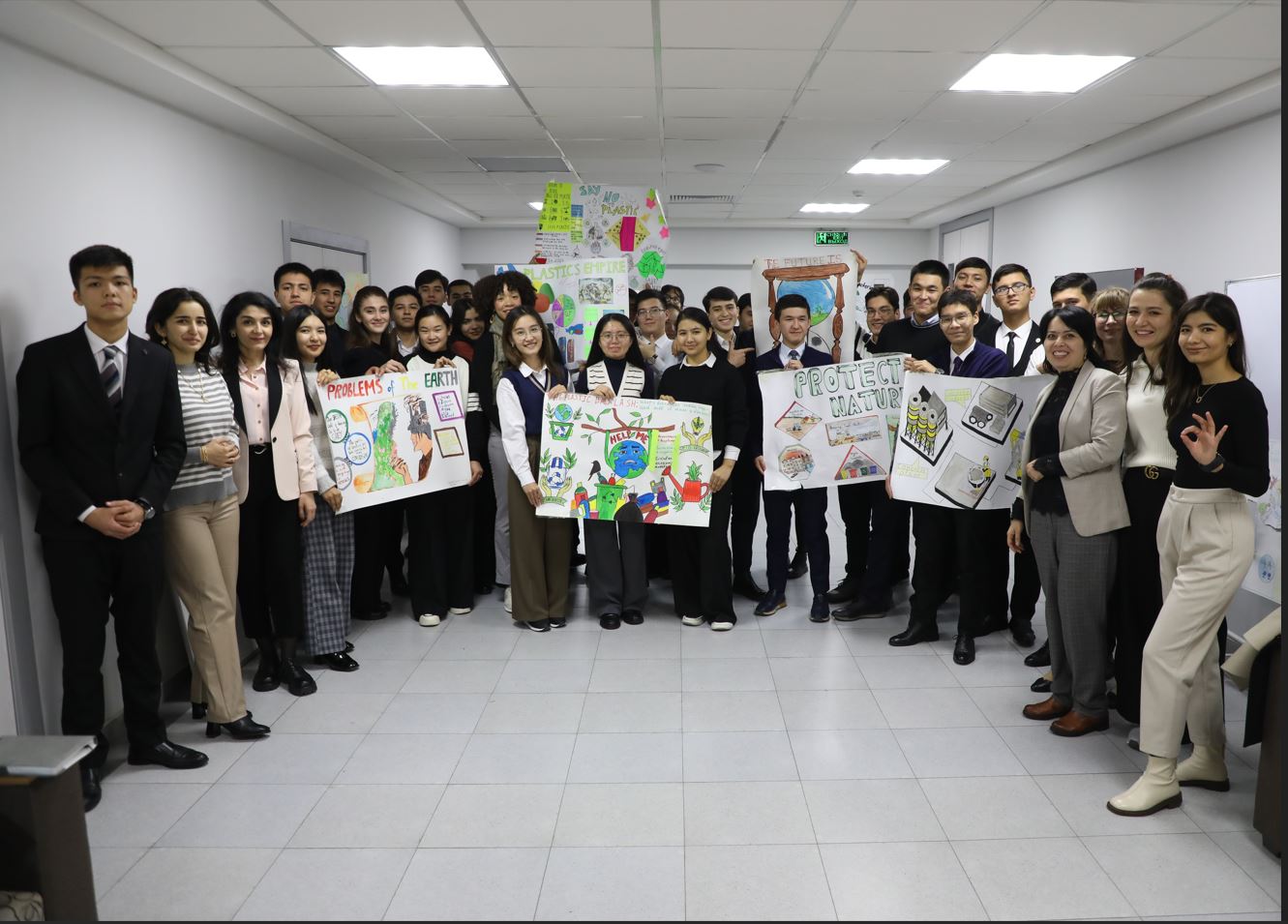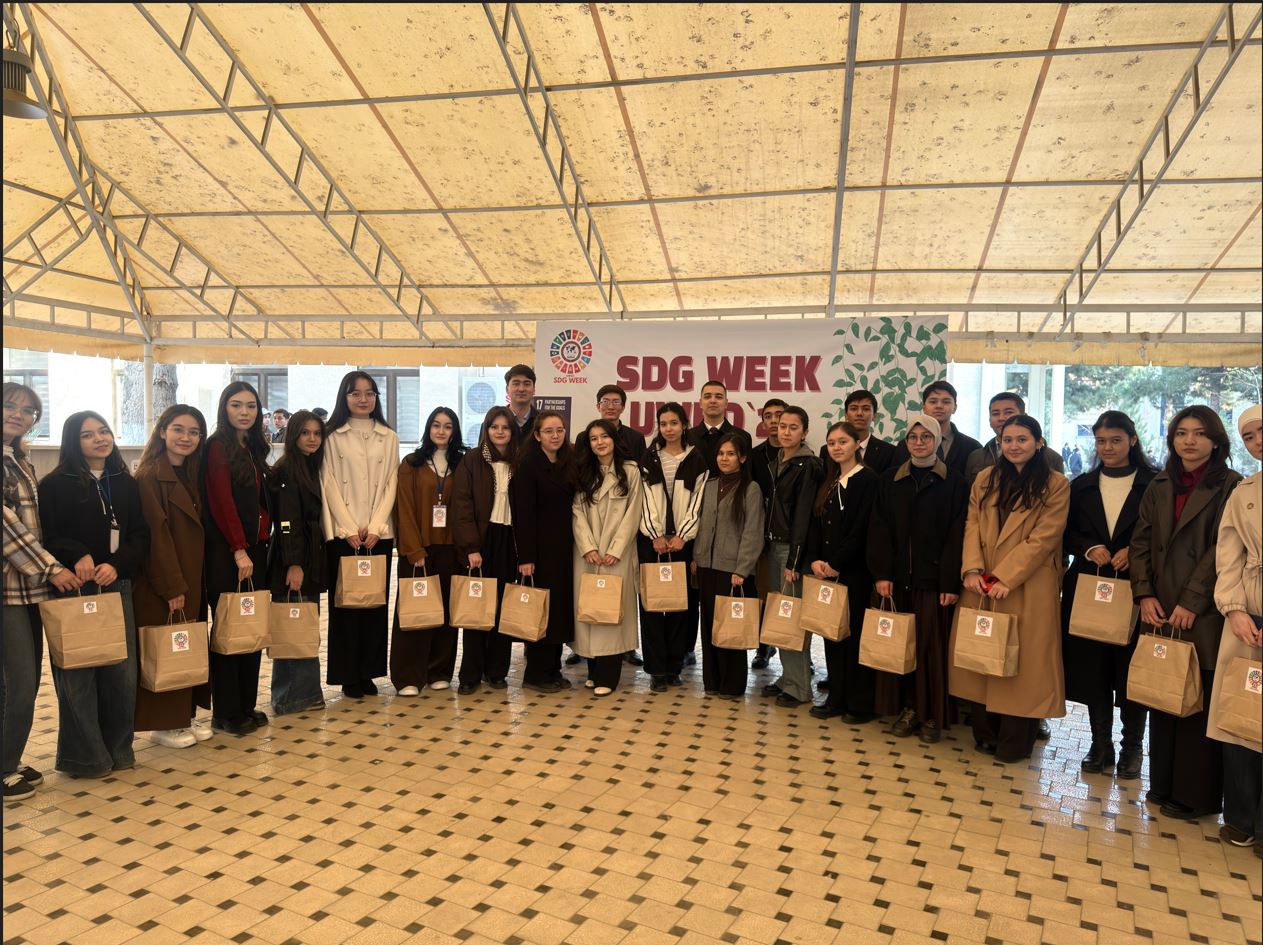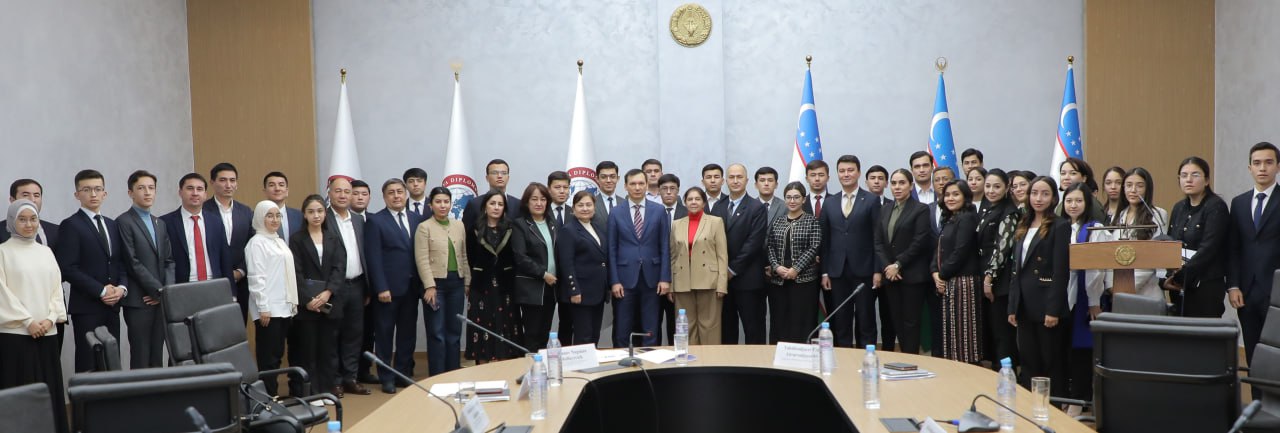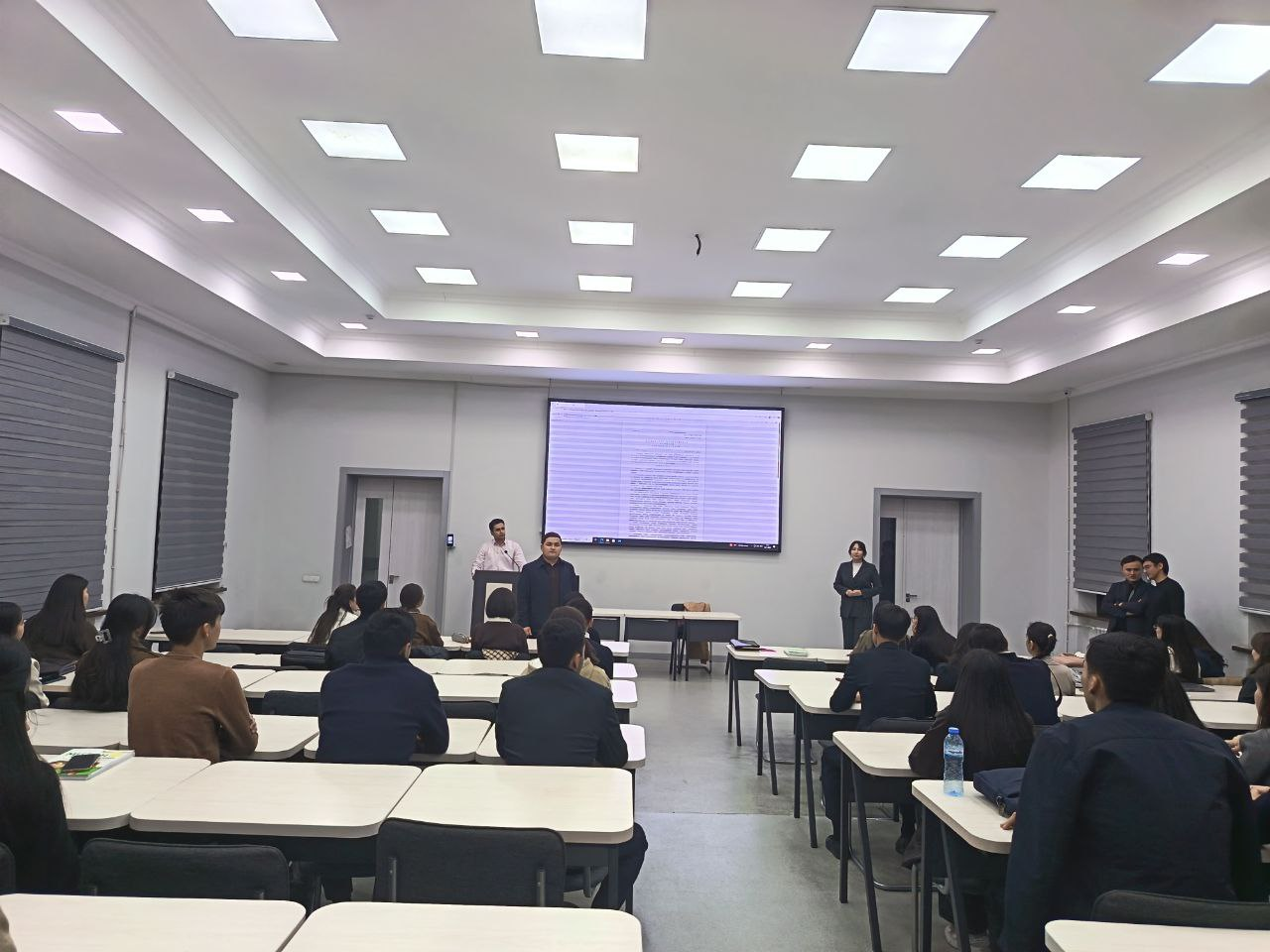
High-Level Policy & Science Dialogue on “Bridging Waters, Building Futures: Advancing Water Diplomacy in Central Asia” was held at UWED
High-Level Policy & Science Dialogue on “Bridging Waters, Building Futures: Advancing Water Diplomacy in Central Asia” was held at UWED
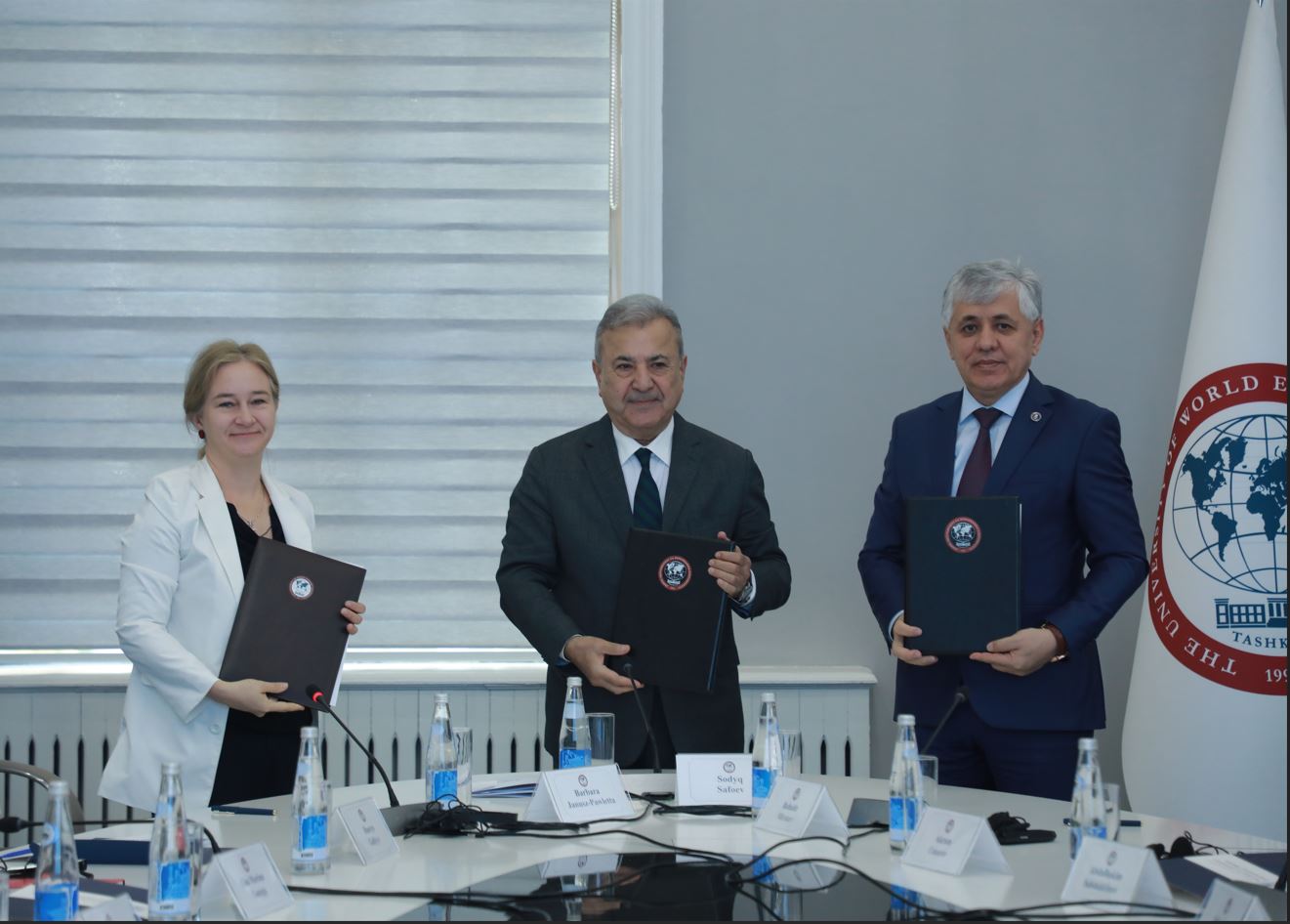
Reaffirming its commitment to knowledge-sharing and capacity-building, the Institute for Advanced International Studies (IAIS) at the University of World Economy and Diplomacy (UWED) hosted a high-level Policy & Science Dialogue, “Bridging Waters, Building Futures: Advancing Water Diplomacy in Central Asia”, on 20 November 2025 at UWED. The Dialogue brought together academic leaders, water professionals, representatives of international organisations and development partners to discuss how innovative forms of water diplomacy can support sustainable development, peace and regional cooperation in Central Asia.
Held as part of IAIS’s flagship THINK ROAD FORUM, the Dialogue provided a platform for frank, evidence-based discussion on the political, legal, economic and technical dimensions of transboundary water management in a region that is acutely exposed to climate change and water stress.
The event opened with a welcoming speech by the First Deputy Chairman of the Senate of the Oliy Majlis of the Republic of Uzbekistan, Rector of the University of World Economy and Diplomacy, Prof. Sodyq Safoev, who emphasized the key importance of water diplomacy for sustainable development, regional security, and strengthening cooperation in Central Asia. He particularly noted the role of universities and research centers in forming a professional community capable of proposing scientifically sound solutions to complex transboundary water issues. S. Safoev expressed confidence that this Dialogue would be an important step towards developing long-term mechanisms for interaction between the states of the region and international partners.
A central milestone of the event was the formal launch of the region’s first Master of Water Diplomacy programme, jointly developed by UWED and TIIAME-NRU in close partnership with IWMI. Participants underscored that this specialised programme will play a critical role in training a new generation of water diplomacy professionals who can operate at the interface of science, policy and negotiation, and who are able to craft cooperative solutions in complex transboundary contexts.
The Dialogue also cemented a new trilateral partnership through the signing of a Memorandum of Understanding between UWED, TIIAME-NRU and IWMI. The MoU lays the groundwork for long-term cooperation in water and climate diplomacy, including joint curriculum development, co-supervision of students, collaborative research projects, and the co-production of policy-relevant knowledge for governments and regional organisations. The parties highlighted that this institutionalised partnership will help turn pilot initiatives into a more structured ecosystem for education, training and policy engagement on water diplomacy in Central Asia.
In a series of panel discussions and exchanges, participants examined innovative approaches to water diplomacy and education, international experiences in water governance, and the opportunities for linking academic expertise with ongoing policy processes in the region. Particular attention was paid to strengthening regional dialogue, improving data and knowledge sharing, and designing inclusive training formats that involve young professionals, civil servants, and practitioners from across Central Asia.
The Dialogue concluded with a shared recognition that effective and equitable water management is a strategic priority for Central Asia and that water diplomacy must be grounded in sound science, strong institutions and sustained regional cooperation. Participants expressed their readiness to continue working together on joint educational initiatives, summer schools, research projects and policy dialogues that support integrated water resources management and contribute to achieving the Sustainable Development Goals.
Building on the success of this event, the Institute for Advanced International Studies once again confirmed its role as a bridge between academic knowledge and policymaking, positioning itself as a regional hub for critical debate, evidence-based analysis and capacity-building in water diplomacy and related fields.
